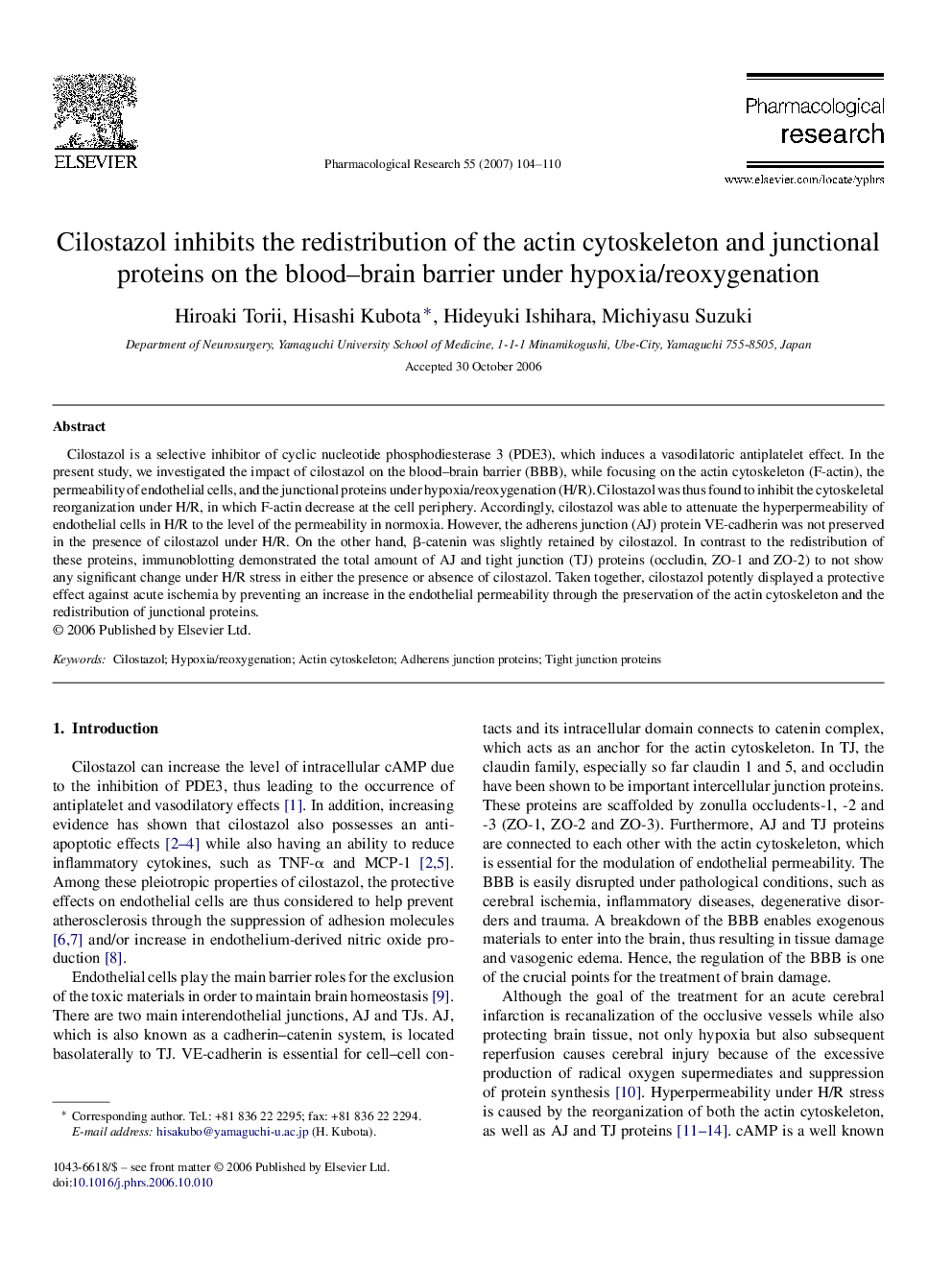| کد مقاله | کد نشریه | سال انتشار | مقاله انگلیسی | نسخه تمام متن |
|---|---|---|---|---|
| 2562979 | 1127333 | 2007 | 7 صفحه PDF | دانلود رایگان |

Cilostazol is a selective inhibitor of cyclic nucleotide phosphodiesterase 3 (PDE3), which induces a vasodilatoric antiplatelet effect. In the present study, we investigated the impact of cilostazol on the blood–brain barrier (BBB), while focusing on the actin cytoskeleton (F-actin), the permeability of endothelial cells, and the junctional proteins under hypoxia/reoxygenation (H/R). Cilostazol was thus found to inhibit the cytoskeletal reorganization under H/R, in which F-actin decrease at the cell periphery. Accordingly, cilostazol was able to attenuate the hyperpermeability of endothelial cells in H/R to the level of the permeability in normoxia. However, the adherens junction (AJ) protein VE-cadherin was not preserved in the presence of cilostazol under H/R. On the other hand, β-catenin was slightly retained by cilostazol. In contrast to the redistribution of these proteins, immunoblotting demonstrated the total amount of AJ and tight junction (TJ) proteins (occludin, ZO-1 and ZO-2) to not show any significant change under H/R stress in either the presence or absence of cilostazol. Taken together, cilostazol potently displayed a protective effect against acute ischemia by preventing an increase in the endothelial permeability through the preservation of the actin cytoskeleton and the redistribution of junctional proteins.
Journal: Pharmacological Research - Volume 55, Issue 2, February 2007, Pages 104–110